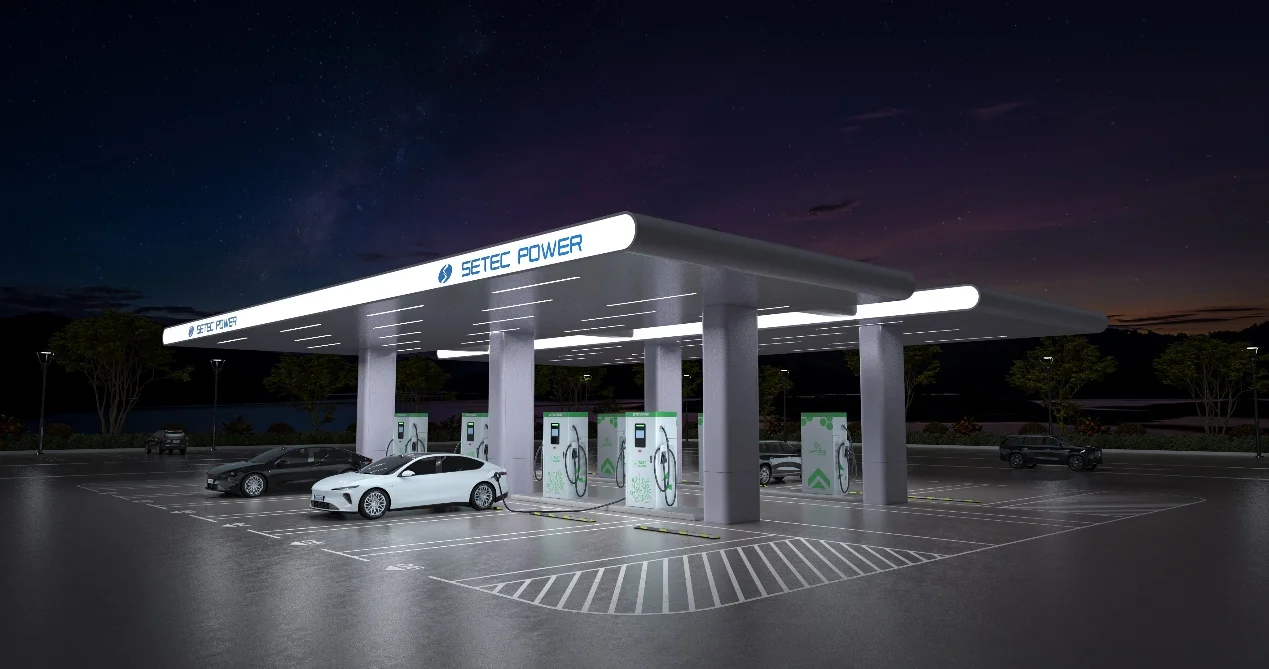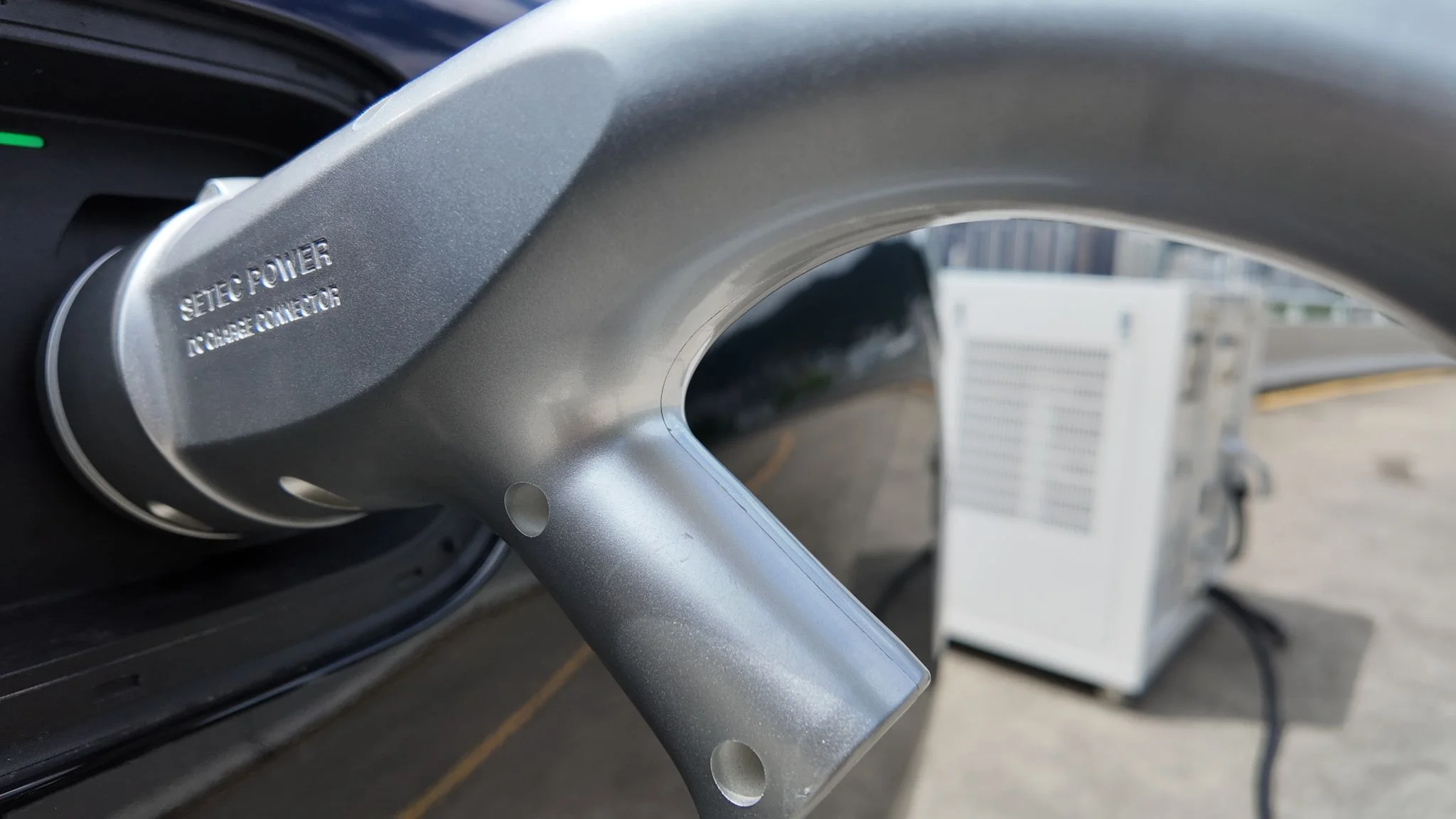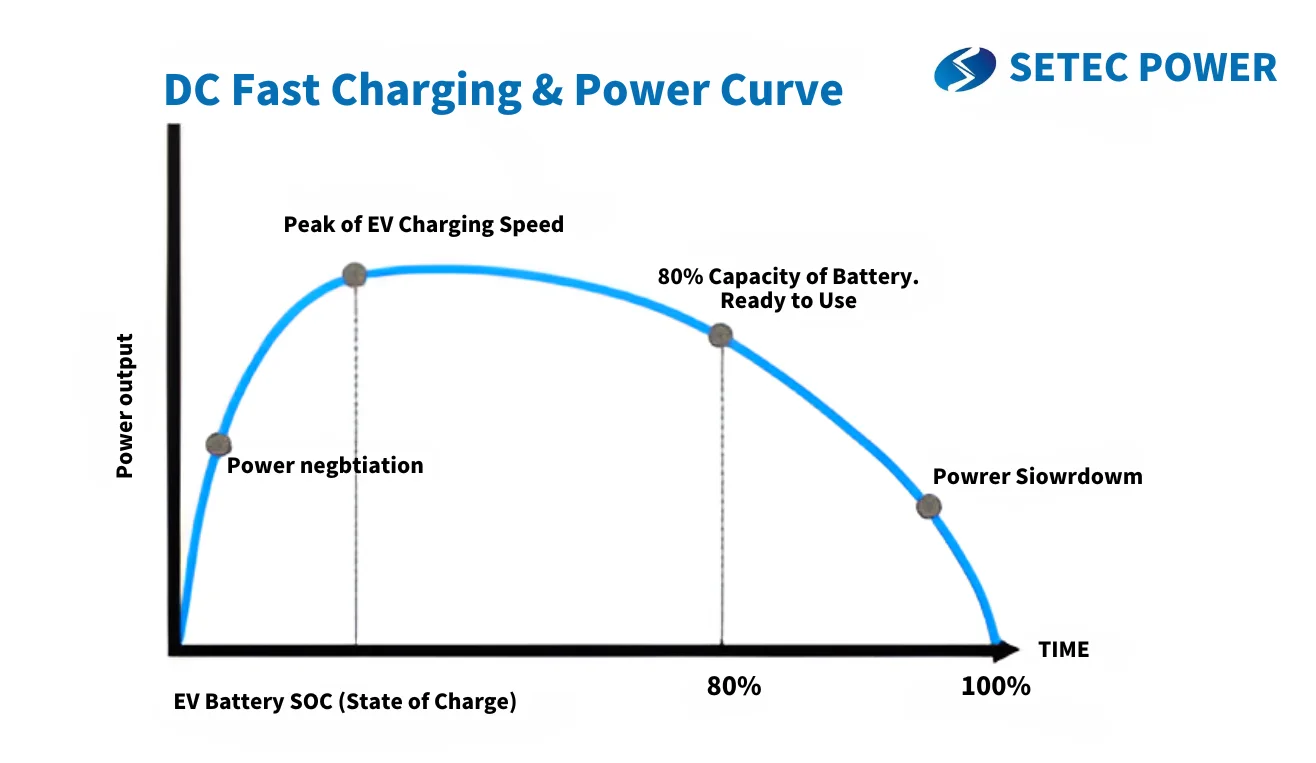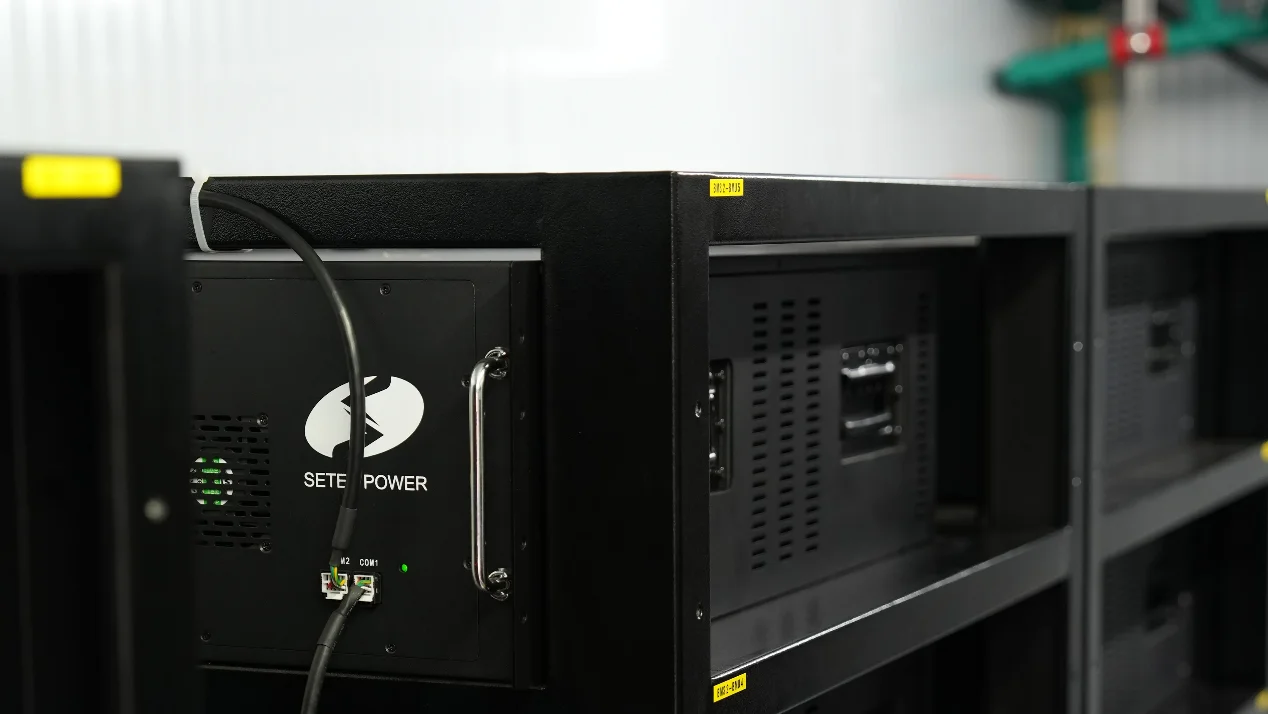Feb 24, 2025
Understanding How EV Charging Works
Think about filling a water bottle. The charging station's power is like the size of the water pipe, the electricity is like the water, and your car's battery is like the bottle. This simple comparison helps us understand three basic things:
· Power (pipe size): How much electricity can flow at once
· Battery size (bottle size): How much electricity your car can hold
· Charging port (bottle opening): How much electricity your car can take in at once
Common Myths and Facts
Myth: Higher power always means faster charging.
Fact: Charging speed depends on many things, not just power.
What Affects Charging Speed?
Key Factors
Vehicle's maximum charging rate
Every electric car has a limit on how much power it can take in. It's like the opening of a water bottle - no matter how big the water pipe is, the bottle can only take in water as fast as its opening allows. For example, if your car can only handle 50kW of power, using a 150kW charger won't make it charge any faster.
Helpful Tip: Before buying an electric car, check its maximum charging speed. This will affect how quickly you can charge every day.
Charging Station Power
The power rating of a charging station is like the size of the pipe delivering the electricity. Higher kW stations can charge faster, but there are limits. For instance, a 60kW station will charge a car faster than a 22kW station, assuming the vehicle is capable of accepting that power.

Charging Port Power
The charging port also plays a role in charging speed. A powerful charging port with a high amperage rating ensures the power can be delivered quickly and efficiently. If the port’s power rating is too low for the charging station, it can bottleneck the charging process, slowing things down even if the station is capable of higher power.

Vehicle's Battery Capacity
Just like a small bucket and a large bucket collecting water, even if the water flows at the same rate, the large bucket will take longer to fill. The battery capacity (in kWh) of the electric vehicle determines how much electricity needs to be charged. The larger the capacity, the longer the total charging time may be, even if the charging station has a high power.
Other influencing factors
Battery State of Charge (SOC) and Charging Curve
In the initial stage, especially when the State of Charge (SOC) is low, the charging speed is fast. As the SOC increases, the charging speed gradually slows down. The charging speed remains relatively fast when the SOC is between 20% and 80%, which is typically the most efficient phase of the charging process. Once the SOC reaches around 80%, the charging rate significantly decreases to prevent overcharging and protect the battery's health.
Studies have shown that there is no linear relationship between SOC and charging speed. Specifically, when the SOC is close to full charge, the BMS (battery management system) will reduce the charging power to ensure safety and extend battery life.

Temperature Matters
Battery temperature is really important for charging. The best charging temperature is between 68-77°F (20-25°C). Here's what happens at different temperatures:
· Below 32°F (0°C): Charging might be 50% slower
· Above 95°F (35°C): The car might slow down charging to protect the battery
· 68-77°F (20-25°C): This is the "perfect" temperature for charging
Power Grid Conditions
The power grid’s capacity and conditions also matter. If the grid is under heavy load or there are power restrictions, it might impact the performance of the charging station, resulting in slower charging times, especially during peak hours when demand is high.
Impact on Battery Life
While fast charging is convenient, it's important to remember that charging speed can affect battery longevity. Just like filling a glass too quickly can cause spills, charging at too high a rate frequently can stress the battery. This is why a Battery Management System (BMS) is crucial to managing charging speeds and ensuring that the battery is not damaged over time. According to research from the U.S. Department of Energy, while occasional fast charging is fine, consistently charging at high speeds can reduce battery capacity and longevity.

Choosing the Right Charging Station
When selecting a charging station, consider:
· Your car’s charging capacity
· How much charge you need
· Environmental conditions
· Station location and cost
Conclusion
Yes, higher power charging stations can indeed offer faster charging speeds, but it’s not the only factor. The true charging speed depends on a combination of the station’s power, your vehicle's charging capacity, the condition of the battery, and environmental factors. By understanding how these elements work together, you can make better decisions to optimize your EV charging experience.